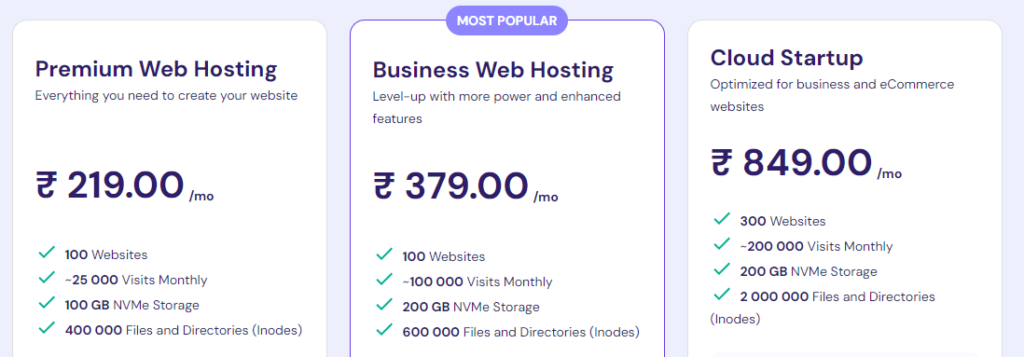Modern Management Thoughts
In today’s rapidly evolving business world, one thing remains constant—change. From hybrid work cultures to AI-powered decision-making, the landscape of management is undergoing a seismic shift. Gone are the days when rigid hierarchies and static strategies ruled the workplace. Instead, agility, empathy, and innovation have taken the spotlight.
So, what exactly are the modern management thoughts driving success in 2025? In this in-depth article, we’ll explore the most recent trends, their real-world implications, and why you should care as a professional, leader, or entrepreneur.
🔍 Understanding Modern Management: A Quick Refresher
Before we dive into the current trends, let’s briefly revisit what “modern management” really means.
Modern management refers to adaptive, people-centric, and technology-enabled practices that align business goals with societal needs. It’s not just about directing teams—it’s about inspiring, guiding, and innovating to create long-term value.
Some core principles include:
- Decentralization of authority
- Flexibility and adaptability
- Continuous learning and development
- Emphasis on emotional intelligence
- Sustainability and ethical leadership
Now, let’s jump into the key modern management thoughts and trends shaping the business world today.
🌐 1. Hybrid and Remote Work Models Are Here to Stay
One of the biggest management shifts in recent years has been the adoption of hybrid work environments. While this started as a response to the pandemic, it’s now become a strategic choice.
Key Aspects:
- Flexible scheduling
- Cloud collaboration tools (e.g., Zoom, Teams, Asana)
- Emphasis on output, not hours
- Remote-first leadership strategies
Why it matters: Managers must now learn to build trust and accountability without micromanagement. It’s a shift from supervision to empowerment.
👉 Pro tip: Set clear goals and leverage tools like OKRs (Objectives and Key Results) to ensure alignment across distributed teams.
🤖 2. AI and Automation Are Redefining Decision-Making
AI is no longer a futuristic concept—it’s today’s reality. From chatbots to predictive analytics, modern managers are using AI to make faster, more informed decisions.
Examples:
- HR managers using AI for talent acquisition and retention
- Marketing heads relying on predictive tools for consumer behavior analysis
- Operations managers automating inventory and logistics
But there’s a catch: Relying too heavily on algorithms without human judgment can backfire. Managers must balance data-driven decisions with ethical considerations.
👉 Manager’s mindset: “Let AI do the math. I’ll provide the context.”
💡 3. Emotional Intelligence (EQ) Is the New IQ
While technical skills are still important, emotional intelligence is becoming the defining trait of great managers.
Core EQ skills:
- Self-awareness
- Empathy
- Active listening
- Conflict resolution
- Adaptability under pressure
Leaders who cultivate high EQ foster psychological safety within teams. This, in turn, leads to better collaboration, creativity, and employee satisfaction.
Example: Google’s “Project Aristotle” showed that psychological safety is the top factor in high-performing teams—not raw intelligence or experience.
👉 Try this: Start your team meetings with a “pulse check” or a quick mental health check-in.
🌱 4. Sustainability is a Strategic Priority
Today’s consumers—and employees—demand more than just profits. They expect companies to have a purpose and contribute to a sustainable future.
Modern management now includes:
- ESG (Environmental, Social, and Governance) reporting
- Green operations and supply chains
- Ethical labor practices
- Stakeholder capitalism
Trend in action: Companies like Patagonia and Tesla have built their brand around sustainability—and seen massive loyalty in return.
👉 Modern manager tip: Integrate sustainability goals into performance metrics.
🎯 5. Agile and Lean Management Practices Gain Traction
Originally born in the software industry, Agile and Lean methodologies are now widespread across various sectors.
What does it involve?
- Iterative planning
- Daily stand-ups
- Cross-functional collaboration
- Continuous improvement (Kaizen)
Instead of annual planning, today’s managers focus on adaptive, bite-sized strategies. This helps them pivot quickly in dynamic environments.
Real example: Spotify’s “Squad” structure allows small autonomous teams to innovate rapidly while staying aligned with company goals.
👉 Management tip: Replace long-term static roadmaps with quarterly “sprints” and real-time feedback loops.
📲 6. Digital Transformation Is a Leadership Imperative
Digital isn’t just a department—it’s a mindset.
From cloud computing to data security, managers need to embrace digital fluency. This doesn’t mean becoming coders—it means understanding how digital tools can accelerate performance.
Modern management includes:
- Cybersecurity awareness
- SaaS adoption (Software as a Service)
- Cross-channel customer engagement
- CRM, ERP, and business intelligence tools
The shift: IT is no longer a support function—it’s a strategic driver.
👉 Quick win: Encourage upskilling with platforms like Coursera or LinkedIn Learning on digital tools relevant to your industry.
🧠 7. Continuous Learning Culture Is Non-Negotiable
Knowledge is compounding at an exponential rate. The skills you learned five years ago may already be outdated.
That’s why modern managers prioritize:
- Microlearning and online courses
- Mentorship programs
- Cross-training across departments
- Learning KPIs (e.g., hours of training per employee)
Why it matters: Companies that foster a learning culture innovate faster, retain top talent, and adapt better.
👉 Manager’s playbook: Offer learning stipends and encourage employees to teach back what they’ve learned.
🧭 8. Inclusion and Diversity Are More Than Just Buzzwords
In 2025, diverse teams perform better—not just because it’s the right thing to do, but because it drives results.
Modern management involves:
- Inclusive hiring practices
- Cultural competence
- Gender equity initiatives
- Unconscious bias training
Companies with diverse leadership teams are proven to be 33% more likely to outperform peers on profitability (McKinsey).
👉 Actionable step: Audit your team’s diversity and create specific goals tied to leadership development programs.
🧩 9. Employee Experience is the New Customer Experience
Just like customers, employees expect personalized, engaging, and supportive environments.
Modern management strategies now include:
- Employee journey mapping
- Health and wellness programs
- Career path customization
- Feedback loops and pulse surveys
Shift in mindset: Happy employees = Happy customers.
👉 What you can do: Implement an internal “NPS” (Net Promoter Score) to measure employee satisfaction regularly.
📈 10. Data-Driven Culture With a Human Touch
Data is the new oil—but only if refined. Managers are now expected to:
- Set KPIs that matter
- Use dashboards for visibility
- Track customer and employee sentiment
- Apply predictive analytics for proactive decisions
However, interpretation with empathy is what sets great managers apart. Data should inform decisions, not dictate them.
👉 Tool to try: Google Looker or Tableau for custom dashboards that your team can understand.
💬 Final Thoughts: The Human Side of Modern Management
All these trends boil down to one truth: People are the heart of modern management. Technology may be the engine, but people are the fuel.
To succeed in 2025 and beyond, managers must blend:
- Analytical thinking with emotional depth
- Tech-savviness with human empathy
- Strategic planning with agile execution
Whether you’re a CEO, team leader, or aspiring entrepreneur, embracing these modern management thoughts will future-proof your leadership and unlock your team’s full potential.
📌 Summary Table: Top 10 Modern Management Trends
| Trend | Key Takeaway |
|---|---|
| Hybrid Work | Flexibility and autonomy are key |
| AI & Automation | Data + human insight = smarter decisions |
| Emotional Intelligence | Empathy drives engagement |
| Sustainability | Purpose-driven leadership wins loyalty |
| Agile Management | Fast, flexible execution matters |
| Digital Fluency | Tech is a leadership skill now |
| Continuous Learning | Up-to-date skills keep you competitive |
| Inclusion & Diversity | Equity fuels innovation |
| Employee Experience | Happy teams perform better |
| Data-Driven Culture | Insightful decisions, not just numbers |
💬 Let’s Discuss!
What management trends are you seeing in your industry? Have you adopted any of these ideas already—or are you planning to?
Drop a comment below or share this with your network if you found it valuable. Let’s keep the conversation going!
“Start Your Website Journey Today – Exclusive Hostinger Discounts!”










